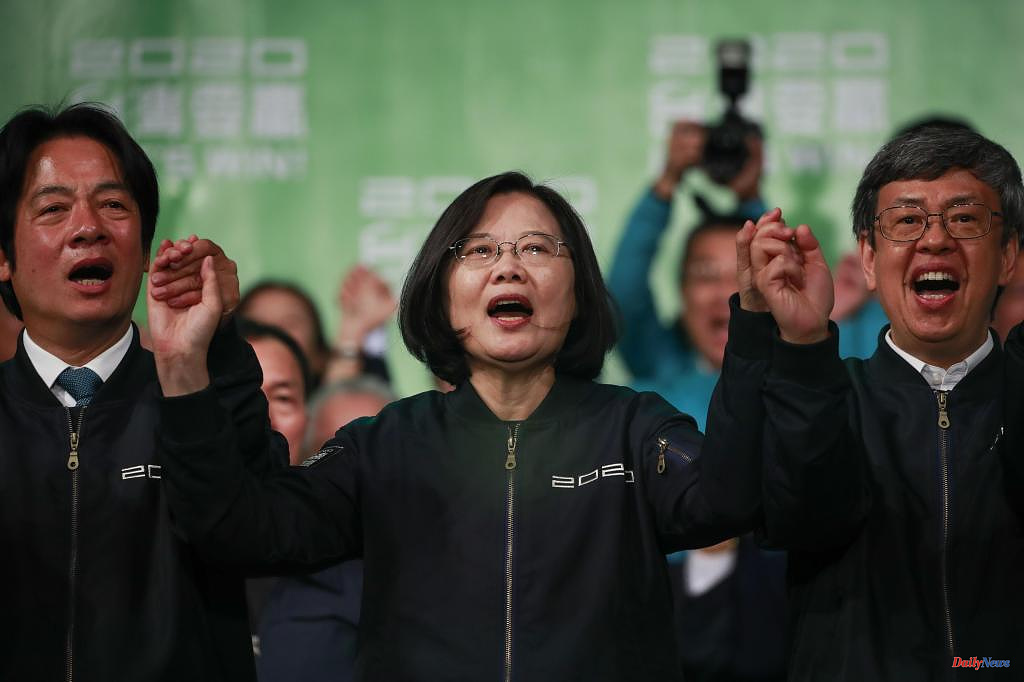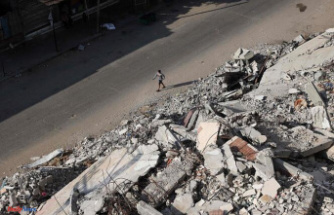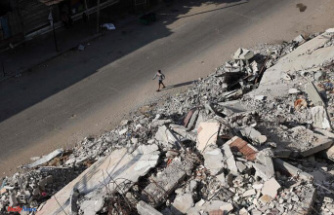The first great wave of the movement
The scene was widely applauded in Taiwan, where local politics have habitually kept up the bad habit of covering up scandals before they came to light and hurt the party. But that seems to have changed. Suddenly, the case that was exposed in the series took the leap to social networks and from there to the streets with an avalanche of complaints of sexual harassment and assault in many sectors, especially in politics, splashing the ruling Progressive Democratic Party. (PDP).
Complaints from the past that were silenced by the parties and forgotten by the press have been put back on the table. To the point that President Tsai Ing-wen has apologized twice this week for the scandals that have come to light.
"Our society as a whole must be re-educated. People who have been sexually harassed are the victims, whom we must protect and not treat with prejudice," Tsai said after one of her national policy advisers, Yan Chih-fa, told submitted his resignation after a complaint for sexual harassment of a party employee in 2018.
Taiwan, as in the Netflix series, is currently facing a tight presidential race that will be resolved in the January 2024 elections. Tsai's PDP, which has run two legislatures, is concerned that the emerging cases could cause a change in the next elections and boost his biggest rival, the nationalist Kuomintang (KMT), currently in opposition and whose line prioritizes closer relations with China, which claims this autonomous island as part of its territory.
The local press says that the ruling party has up to eight "incidents of sexual harassment" on the table. Lai Ching-te, the current PDP chairman and the main candidate to represent his party in the upcoming elections, vowed that they will "handle seriously" all allegations and "punish those who tried to cover up the cases." Lai acknowledged that the allegations filed this week had damaged the reputation of his party.
But the KMT has not escaped these days from the
The wave of complaints started after a former PDP worker, Chen Qian-rou, wrote on Facebook that she had been sexually harassed a few months ago by a film director after filming an election propaganda video. Chen said she told everything to the head of the PDP's women's development department, Undersecretary Hsu Chia-tien, who told her it was her fault for not "avoiding the director" and that the party could not do nothing for her Hsu tendered her resignation earlier this month.
After Chen's public complaint, another twenty victims also exposed their cases of sexual harassment related to different political parties in a nation where women occupy 42% of the seats in Parliament. In addition, every day new complaints appear in the media involving teachers, firefighters, civil servants and even a well-known former student leader of the 1989 Tiananmen Square protests, Wang Dan, who took refuge in Taipei and has been accused of rape. According to the Ministry of Health and Well-being of this island where 23 million people live, in 2022 17,000 sexual assaults were reported and 2,100 incidents of sexual harassment fled.
According to the criteria of The Trust Project












